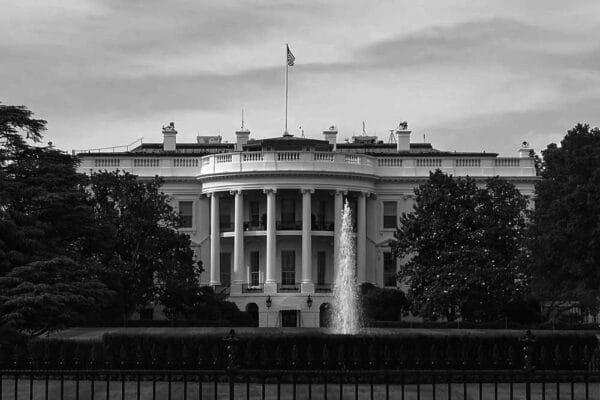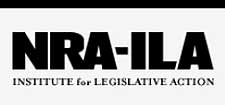
Last week, we reported on the Biden Administration’s treacherous move to defund scholastic archery, hunting, and marksmanship programs under an obscure provision of the Orwellian Bipartisan Safer Communities Act (BSCA). The BSCA has proven to be the gift that keeps on giving for extreme and persecutory gun control, to the mortification of some of its more moderate supporters who thought they were voting for provisions aimed at reducing crime and increasing access to mental healthcare. Now, details are emerging of Biden’s latest plans to leverage the sprawling, sinister act in his continued pursuit of civilian disarmament. This time the target is eliminating the age-old practice of noncommercial, private firearm sales.
Biden has not been coy about his ambitions to push existing law as far as possible (and likely past the breaking point) toward “universal” firearm background checks. We have already reported on an executive order he released in March, the first item of which was “moving the U.S. as close to universal background checks as possible without additional legislation.” But Biden did have legislative help from the BSCA in this effort, which amended a critical legal term concerning who is considered “engaged in the business” of firearm sales, and therefore required to become a federal firearm licensee (FFL) and run background checks on all retail transfers.
Previously, an individual only needed an FFL when engaged in “a course of trade or business“ involving “repetitive” buying and reselling of firearms with the “principal objective” of “livelihood and profit.” The BSCA removed the “livelihood” element so that profit seeking alone would fulfill the required objective of the sales.This change broadened the FFL requirement, but a “course” of “repetitive” buying and reselling of firearms is still necessary. Nevertheless, it has remained unclear where the lines are to be drawn.
Now, the New York Times is reporting that Biden will move ahead with implementing a longtime goal of the anti-gun movement: setting a numerical threshold of sales that will establish when an individual needs an FFL.
The regulations will set a threshold number of transactions that would define a dealer; gun-control groups hope to see it at five sales a year or lower. The rules will be backed up by a renewed push to prosecute businesses that refuse to register, by accessing bank records, storage unit leases and other expenses associated with running an off-the-books gun business.
Indeed, gun control groups had pushed for this same move under the Obama/Biden administration. But even Obama’s army of anti-gun lawyers could not come up with a way around statutory language and judicial interpretations that pre-empted this approach. If the New York Times’s report is true, Biden is clearly hoping activist courts will hang their hats on the changes made by the BSCA to ratify the fiction that Congress used that act to authorize a numerical threshold for who is required to obtain an FFL.
Of course, the BSCA says nothing of the sort. “Livelihood” may not be the same thing as “profit,” but the structure that has always required a case-by-case determination based on the facts of each situation remains in place. Also remaining in place are longstanding qualifications in the law that allow for “occasional sales, exchanges, or purchases of firearms for the enhancement of a personal collection or for a hobby” or for the sale of “all or part of [a] personal collection of firearms.”
Yet the Biden Administration has already shown a distinct willingness to ignore limitations on its authority in other ambitious gun-control rulemakings, a number of which remain mired in ping-ponging judicial proceedings that have substantiated plaintiffs’ allegations of overreach. This rule will almost certainly be no different.
Biden’s gun control schemes, however, reach well beyond agency enforcement and court proceedings. Collaborators in the technology and financial sectors stand ready to help the administration implement its policies with corresponding censorship, de-platforming, and de-banking. Armslist, which was featured at length in the Times report as a supposed private sales boogieman, lost its YouTube account within days of the article’s publication. And popular payment processing, website design, auction sites, social media, and business support software companies or online platforms have already banned even legal firearm sales from their business models. Absent explicit evidence of collusion, these “coincidental” confluences of private sector “business decisions” with administration enforcement policies will be difficult to reach through the judicial process.
The NRA of course opposed the BSCA and warned the public and its moderate supporters that it “leaves too much discretion in the hands of government officials and also contains undefined and overbroad provisions – inviting interference with our constitutional freedoms.” This warning, unfortunately, has been borne out again and again, and the upcoming background check rulemaking could be the most dramatic example yet.
Stay tuned for further developments, and rest assured that the NRA will use all available measures to continue to counteract the Biden administration’s abuse of the BSCA and other provisions of federal law.
About NRA-ILA:
Established in 1975, the Institute for Legislative Action (ILA) is the “lobbying” arm of the National Rifle Association of America. ILA is responsible for preserving the right of all law-abiding individuals in the legislative, political, and legal arenas, to purchase, possess, and use firearms for legitimate purposes as guaranteed by the Second Amendment to the U.S. Constitution. Visit: www.nra.org

